BY AIYANA HAVIR
Green Living Magazine reached out to local experts to discuss the future of clean energy, education, community responsibility, and an individual call to action. Their conversation highlights the challenges Arizona must face in realizing a sustainable future. The experts included Mayor Mark Mitchell, Mayor of Tempe; Joe Abraham, Director of the Office of Sustainability at University of Arizona; Colin Tetreault, Senior Sustainability Policy Advisor for the Phoenix Mayor; Anthony Floyd, Senior Consultant of Scottsdale Green Building Program; and Jose Esparza, Director of Energy Solutions at Southwest Gas.
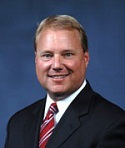 |
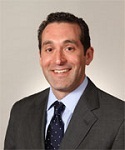 |
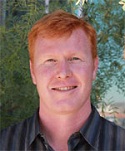 |
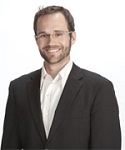 |
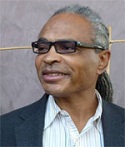 |
| Mayor Mark Mitchell |
Jose Esparza | Joe Abraham | Colin Tetreault | Anthony Floy |
WHAT DO YOU FORESEE AS THE FUTURE OF CLEAN ENERGY?
|
WHAT IS THE FUTURE OF ENVIRONMENTAL EDUCATION?
|
|
MAYOR MITCHELL:In addition to a number of solar installations already present in Tempe, the City completed a grease-to-energy feasibility study using $140,000 Energy Efficiency & Conservation Block Grant funds, and we’re implementing a pilot program to collect fats, oils and grease from downtown Tempe restaurants. JOE ABRAHAM:I generally expect it to continue being an important component of regional, national, and global energy strategies. I also look forward to energy efficiency becoming more important in the policy arena. COLIN TETREAULT:A more sophisticated, clean energy future is one where people and organizations have access to abundant, easily accessible, and cleaner forms of energy. A clean energy future embraces four major concepts: one, more energy from cleaner options; two, more investment in technology for efficiency; three, more investment on environmental protection with regard to energy; and four, advanced infrastructure from a hard (transmission, et cetera) and soft (education and policy) perspective. ANTHONY FLOYD:With the adoption of the 2012 International Energy Conservation Code (IECC), I see a local and statewide uniform effort for the first time in Arizona history for high performance energy-efficient buildings. JOSE ESPARZA:Without a doubt, natural gas is playing and will continue to play a key role in our nation’s clean energy future. Natural gas is a cleaner generating choice, having the smallest carbon footprint of any fossil fuel. It produces virtually no emissions of sulfur dioxide or particulate matter and far lower levels of greenhouse gases and nitrogen oxides than oil or coal. |
MAYOR MITCHELL:I believe the future of environmental education is extremely promising, and Tempe is at the forefront with Arizona State University’s Global Institute for Sustainability. For younger learners, environmental education programs, like Tempe Union High School District’s cross-curricular sustainability program, give students a greater understanding of energy and environmental issues and how we can manage human behavior in order to live sustainably. JOE ABRAHAM:My perspective is that environmental education needs to be very interdisciplinary and diverse to support critical thinking, but also relevant and rigorous to facilitate expertise. COLIN TETREAULT:The future of environmental education embraces nature as a great learning resource. We can not only learn about classic natural systems and science, but take inspiration from nature to advance design, creativity, and entrepreneurs. ANTHONY FLOYD:It will be integrated into everything from school and work to commerce. JOSE ESPARZA:While in the past, environmental education wasn’t seen as a priority in the standard curriculum, it’s now a necessity for our economy, security, and environmental futures. I think we’ll start to see environmental education have a greater and more mainstream role in the education curriculum, especially in K-12 education. We need to start growing the thinkers and innovators of tomorrow today so that we can meet the challenges of the future. |
HOW DO COMMUNITY GARDENS IMPACT THE LOCAL AREA?
|
WHAT DO YOU DO TO LIVE A GREENER LIFESTYLE?
|
|
| MAYOR MITCHELL: Community gardens, along with composting, can have positive economic, environmental and social impacts by reducing the amount of waste we send to the landfill, saving space and money as well as increasing property values and improving our quality of life.JOE ABRAHAM: I see community gardens as immensely positive places. Gardens have proliferated across Tucson in neighborhoods and schools over the past several years, and provide a simple means for anyone to directly connect with a natural system we rely on every day to survive but unfortunately have been detached from.
COLIN TETREAULT: Community gardens not only provide healthy, fresh food to those who need it by addressing food deserts, but they also have the added benefit of providing for increased opportunities like micro-enterprise, community cohesion, and neighborhood beautification. JOSE ESPARZA: I don’t have much of a green thumb unfortunately (I’m working on it!), but I think they have a huge local impact. They help promote healthy communities, strengthen community bonds, provide food, and create recreational and therapeutic opportunities for people of all ages. They also promote environmental awareness and provide community education. |
MAYOR MITCHELL: Every day, my family and I try to make sustainable choices for how we live, whether it’s carpooling to a meeting instead of driving alone, planning family activities to minimize our vehicle trips, making sure all of our recyclables go in the blue bin, choosing one product over another based on its environmental impact, or choosing to go without something we really don’t need.JOE ABRAHAM: Lately I’ve been working on consuming less and keeping my home life simple. My 8-year-old daughter is interested in being a vegetarian, so I’ve been helping her learn more about that and other options. Also, I’ve always found riding bikes to be a win-win and a great way to connect with others, and it’s never too early to start—I’m helping my 3-year-old son become a good push-cyclist.
COLIN TETREAULT: On a more practical level, I like to ride my bike to the grocery store, garden in my backyard (my wife and I are looking forward to our lettuce, kale, and arugula crop), and enjoy a predominantly vegetarian lifestyle. But, I also try to share education on sustainability by acting as a faculty member at ASU’s School of Sustainability. ANTHONY FLOYD: We’re creating a durable, self-sufficient, net-zero energy home with a plug-in hybrid station. JOSE ESPARZA: I recycle paper, plastics and glass, and I try to go paperless at work whenever possible. Additionally, I take measures in my home to make sure it’s properly weatherized. |






